Nietzsche e la filosofia e altri testi
- 322pagine
- 12 ore di lettura
Gilles Deleuze è una figura centrale della filosofia francese postmoderna, identificandosi come empirista e vitalista. Il suo vasto corpus di opere, costruito su concetti come molteplicità, costruttivismo, differenza e desiderio, si discosta in modo significativo dalle correnti principali del pensiero continentale del XX secolo. Nel suo quadro metafisico, abbracciò la nozione spinoziana di un piano di immanenza, postulando tutta l'esistenza come modi di un'unica sostanza sullo stesso livello ontologico. Questa prospettiva lo portò a sostenere l'assenza di un bene e di un male intrinseci, proponendo invece un'attenzione alle relazioni benefiche o dannose per i singoli individui, una posizione etica che influenzò profondamente il suo impegno nelle lotte sociali e politiche per i diritti e le libertà. Deleuze ricercava spesso 'incontri' filosofici con altri pensatori e artisti, concependendo la filosofia non come commento, ma come un atto creativo che genera nuovi concetti, enfatizzando una realtà caratterizzata dal divenire costante anziché dall'essere statico.

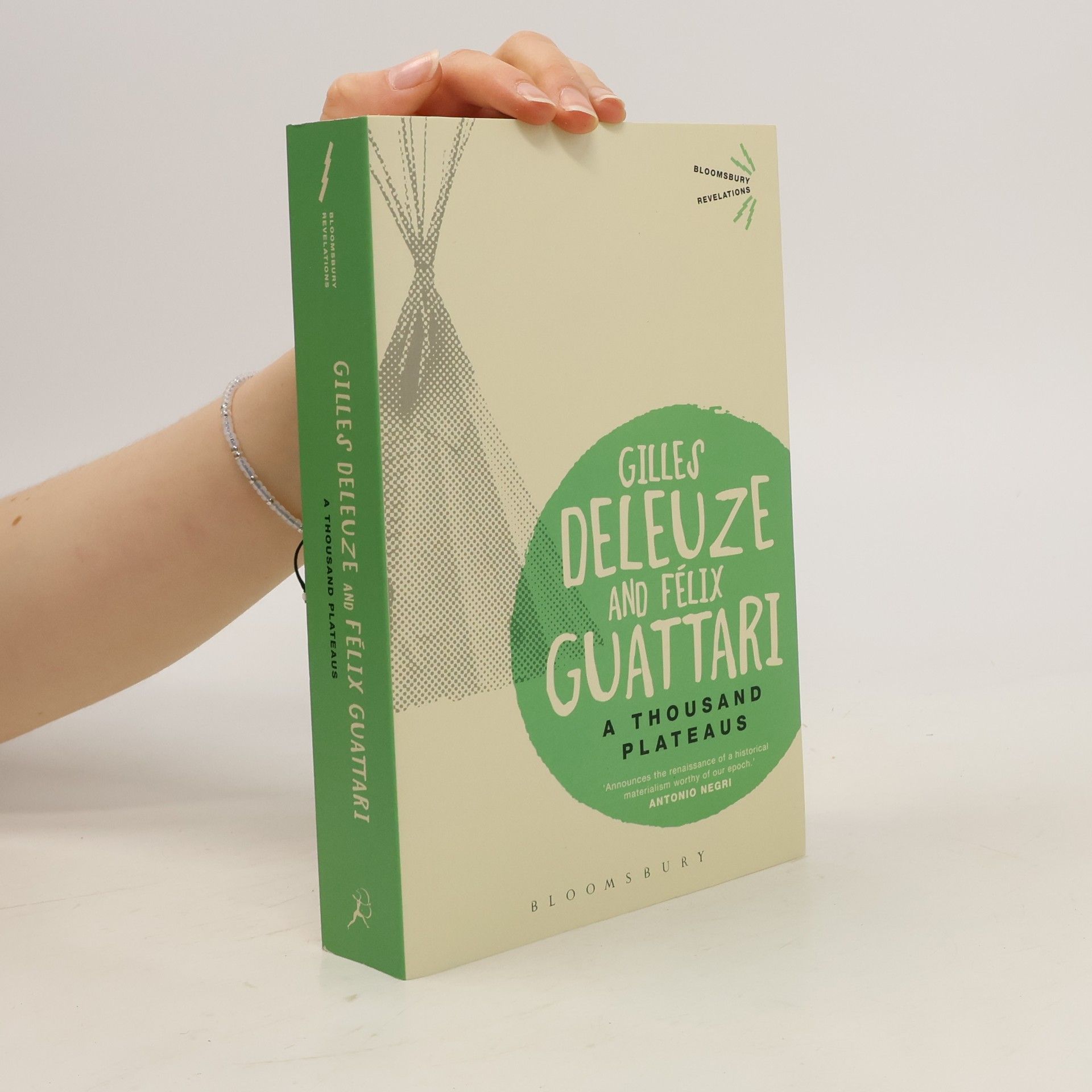
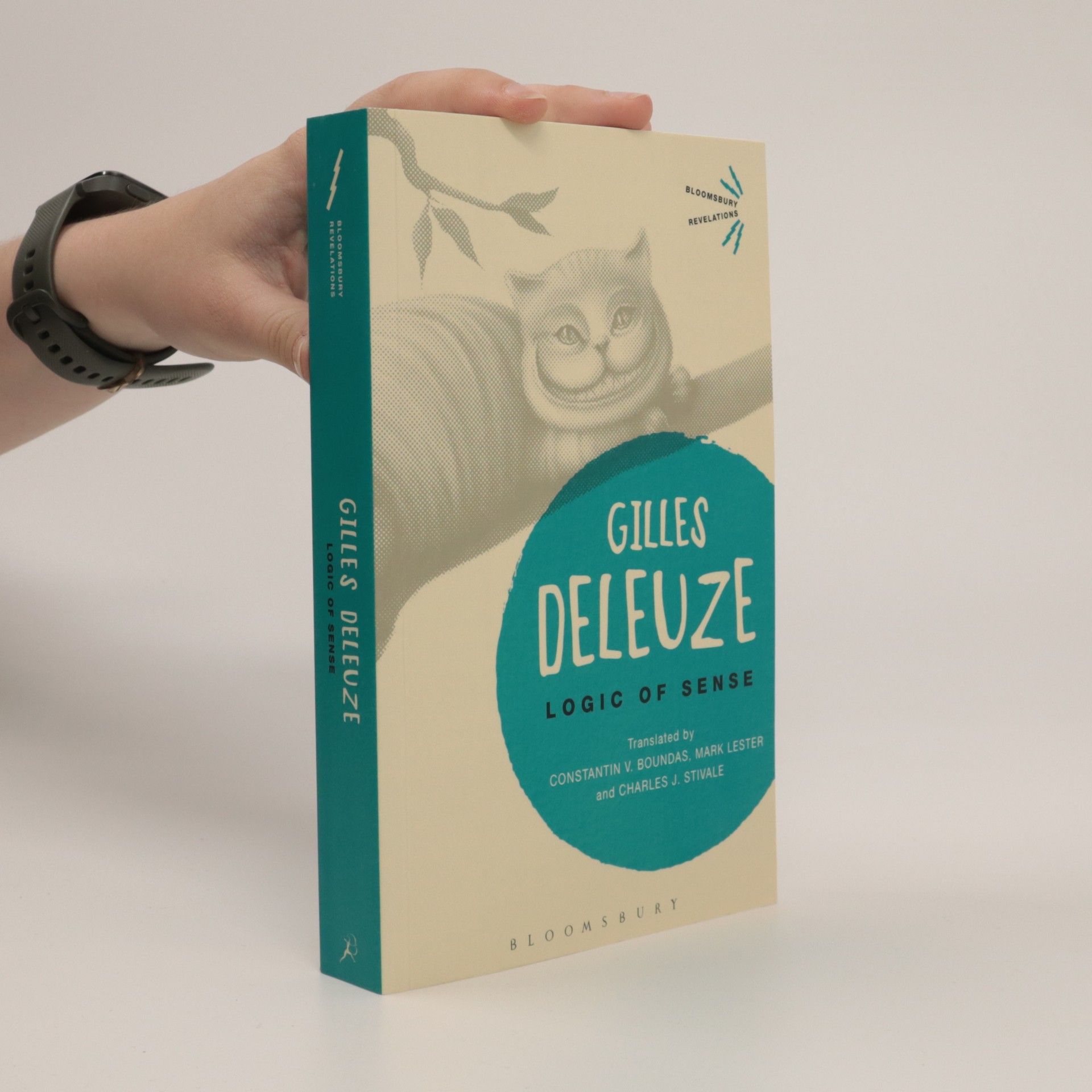

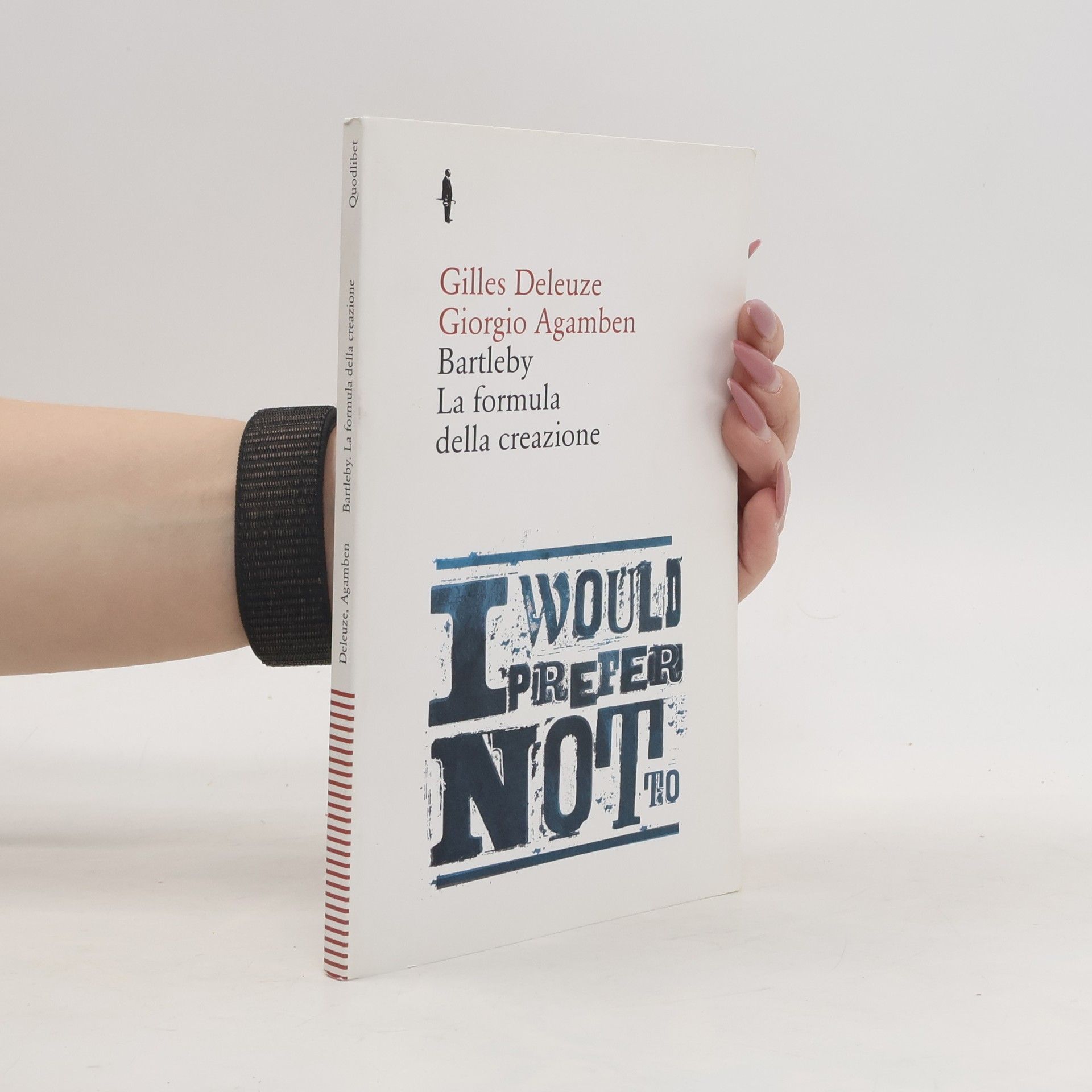
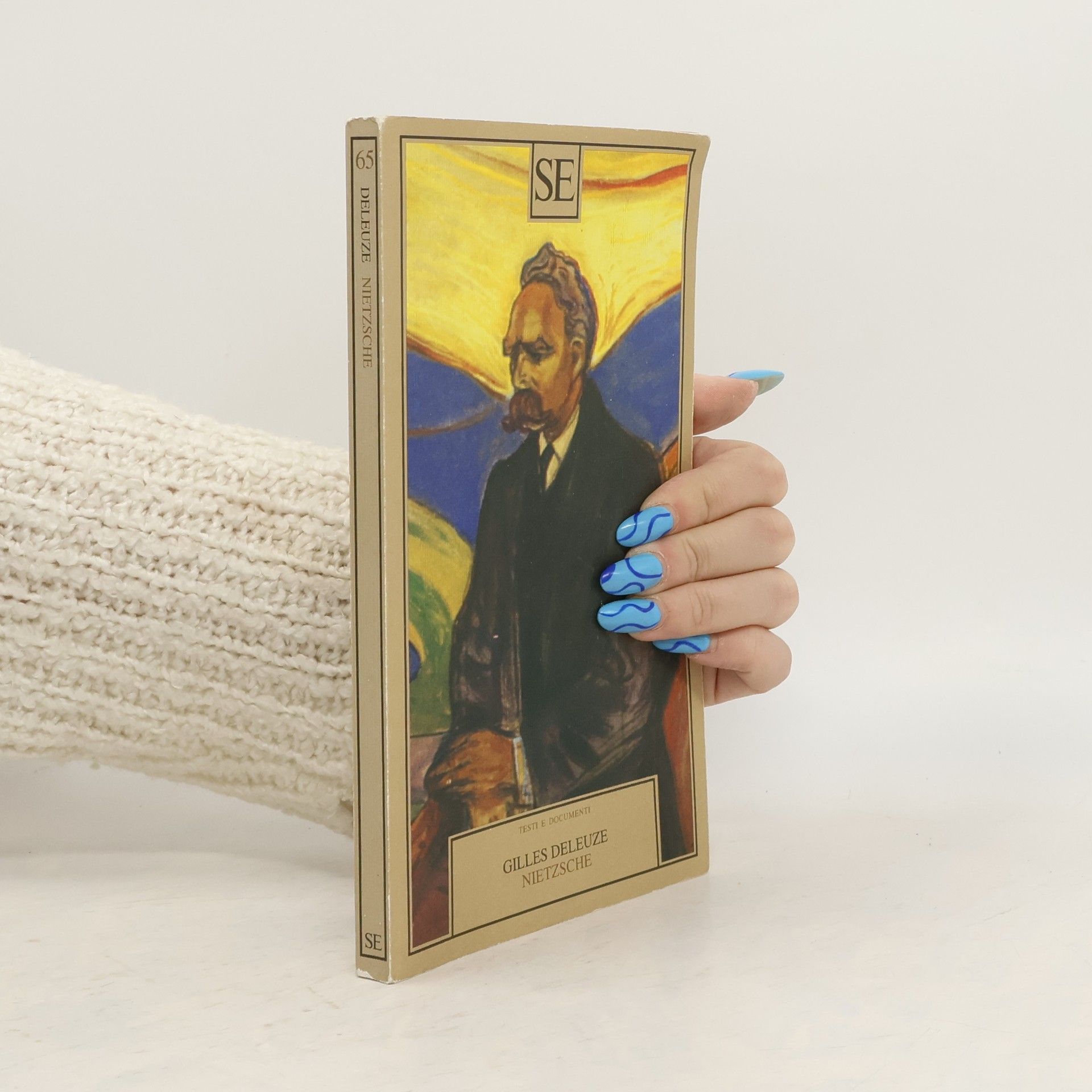
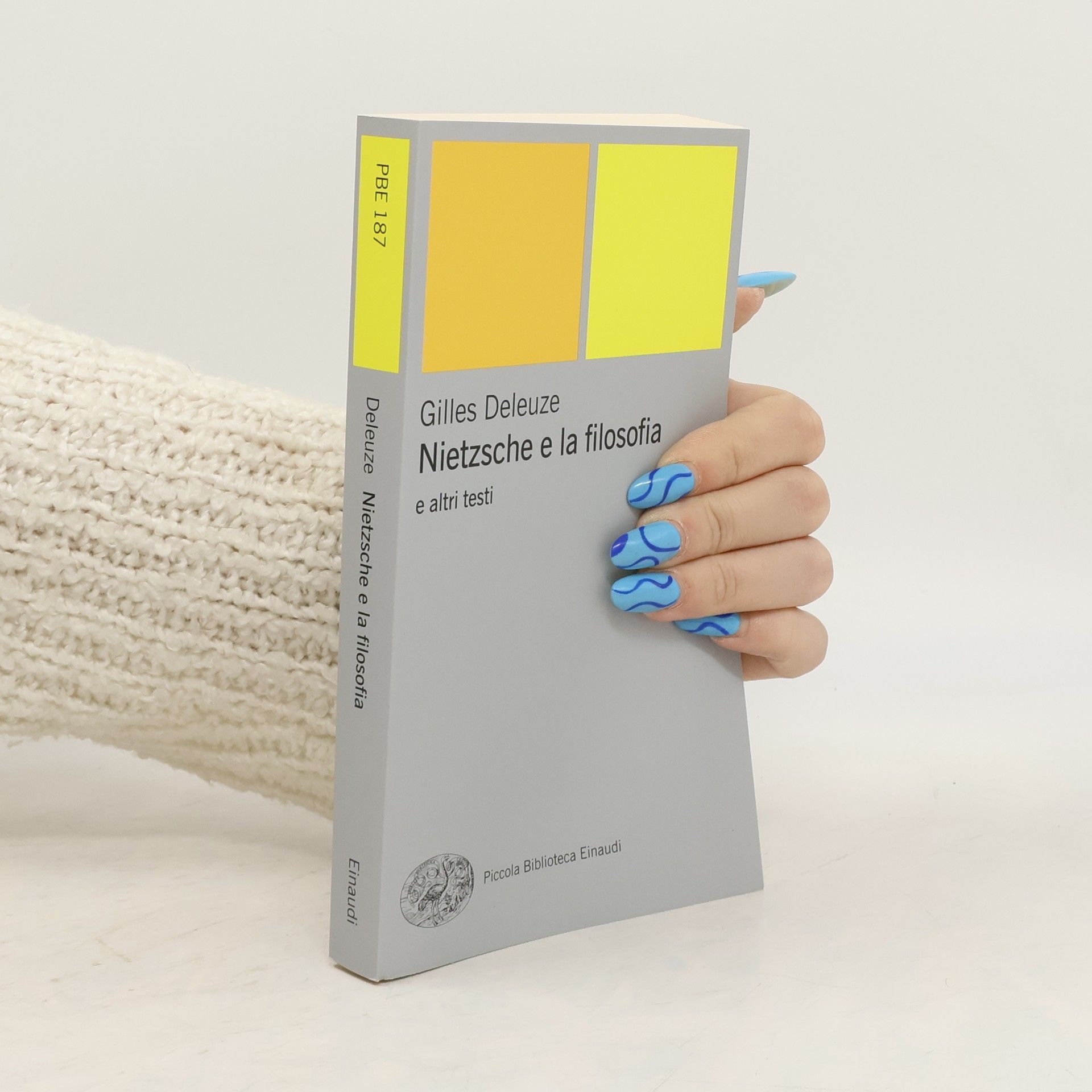
Begeistert hat Hans-Jürgen Schings (FAZ) die „glanzvoll ausgreifende Studie ‚Bartleby oder die Kontingenz’, in der der brillante Denker solcher Anfänge“ das berühmte "I would prefer not to" als Geste einer zweiten Schöpfung und einer neuen Kreatur beschreibe. Auch den Übersetzern gebühre hohes Lob, da sie die „federnde Arbeit des Begriffs“ nicht verfälscht hätten
Texts and interviews from the period that saw the publication of Deleuze's major works.
Logic of Sense is one of Deleuze's seminal works. First published in 1969, shortly after Difference and Repetition, it prefigures the hybrid style and methods he would use in his later writing with Felix Guattari. In an early review Michel Foucault wrote that Logic of Sense 'should be read as the boldest and most insolent of metaphysical treatises'. The book is divided into 34 'series' and five appendices covering a diverse range of topics including, sense, nonsense, event, sexuality, psychoanalysis, paradoxes, schizophrenia, literature and becoming and includes fascinating close textual readings of works by Lewis Carroll, Sigmund Freud, Seneca, Pierre Klossowski, F. Scott Fitzgerald, and Émile Zola. Logic of Sense is essential reading for anyone interested in post-war continental thought.
A Thousand Plateaus is the second part of Deleuze and Guattari's landmark philosophical project, Capitalism and Schizophrenia - a project that still sets the terms of contemporary philosophical debate. Written over a seven year period, A Thousand Plateaus provides a compelling analysis of social phenomena and offers fresh alternatives for thinking about philosophy and culture. Its radical perspective provides a toolbox for 'nomadic thought' and has had a galvanizing influence on today's anti-capitalist movement.
"The first volume of Gilles Deleuze's landmark philosophical study of the art of film, now available in the Bloomsbury Revelations series"-- Provided by publisher
A provocative guide to Deleuze by Deleuze, this collection traces the intellectual journey of one of the most important French philosophers and clarifies the key critical concepts in the work of this vital figure who has had an impact on aesthetics, film theory, psychoanalysis and cultural studies.
Expressionism in Philosophy is both a pivotal reading of Spinoza's work and also a crucial text within the development of Deleuze's own thought.
A fascinating anthology of texts and interviews written over 20 years by renowned French philosopher Gilles Deleuze.